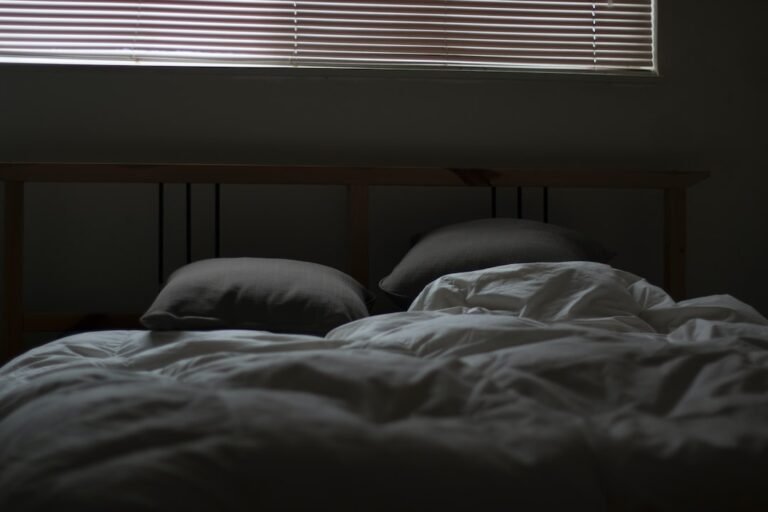Discover the Natural Calm of CBD: How Cannabidiol Can Help with Sleep Problems
CBD, short for cannabidiol, has gained significant attention in recent years for its potential health benefits. One area where CBD has shown promise is in promoting better sleep. Many people struggle with sleep issues, whether it’s difficulty falling asleep, staying asleep, or experiencing poor quality sleep. CBD offers a natural alternative to traditional sleep aids, and its potential benefits for sleep have sparked interest among researchers and consumers alike.
Understanding the Science Behind CBD and Sleep
To understand how CBD can promote better sleep, it’s important to first understand the endocannabinoid system (ECS). The ECS is a complex network of receptors and neurotransmitters that helps regulate various bodily functions, including sleep. The ECS plays a crucial role in maintaining homeostasis, or balance, within the body.
CBD interacts with the ECS by binding to receptors in the brain and throughout the body. This interaction can help regulate sleep patterns by promoting relaxation and reducing anxiety. CBD has been found to have anxiolytic properties, meaning it can help reduce feelings of stress and anxiety. By reducing anxiety, CBD can help calm the mind and prepare the body for sleep.
How CBD Can Promote Relaxation and Reduce Anxiety
One of the key ways that CBD can promote better sleep is through its anxiolytic properties. Anxiety and stress are common culprits of sleep disturbances, making it difficult to fall asleep or stay asleep throughout the night. CBD has been shown to reduce anxiety in both human and animal studies.
CBD interacts with receptors in the brain that are responsible for regulating fear and anxiety responses. By binding to these receptors, CBD can help reduce feelings of anxiety and promote a sense of calmness. This can make it easier to relax and fall asleep at night.
Exploring the Different Forms of CBD for Sleep
CBD is available in various forms, including oils, capsules, gummies, and topical creams. Each form has its own pros and cons when it comes to promoting sleep.
CBD oils are a popular choice for sleep because they can be easily absorbed into the bloodstream when taken sublingually (under the tongue). This allows for faster onset of effects, making it ideal for those who need quick relief from sleep issues. However, the taste and texture of CBD oil may not be appealing to everyone.
CBD capsules offer a convenient and discreet way to take CBD for sleep. They can be easily incorporated into a daily routine and provide a consistent dosage. However, capsules may take longer to take effect compared to oils.
CBD gummies are a tasty and enjoyable way to consume CBD. They come in various flavors and can be easily taken on the go. However, gummies may contain added sugars and other ingredients that may not be ideal for those looking to improve their sleep.
The Role of CBD in Regulating Sleep Cycles
Sleep is divided into different stages, including non-REM (rapid eye movement) and REM sleep. Each stage plays a crucial role in the body’s restorative processes. CBD has been found to have an impact on these sleep stages, helping to regulate sleep cycles.
CBD has been shown to increase the amount of deep sleep, also known as slow-wave sleep, which is important for physical restoration and recovery. It can also reduce the amount of REM sleep, which is associated with dreaming and cognitive processing. By regulating these sleep stages, CBD can help improve the overall quality and duration of sleep.
How CBD Can Help with Insomnia and Other Sleep Disorders

Insomnia is one of the most common sleep disorders, characterized by difficulty falling asleep or staying asleep throughout the night. CBD has shown promise in helping individuals with insomnia achieve better sleep.
Research has found that CBD can help reduce insomnia symptoms by addressing underlying causes such as anxiety and pain. By reducing anxiety, CBD can help calm the mind and promote relaxation, making it easier to fall asleep. CBD has also been found to have analgesic properties, meaning it can help reduce pain and discomfort that may be keeping individuals awake at night.
In addition to insomnia, CBD has also shown potential in helping with other sleep disorders such as sleep apnea. Sleep apnea is a condition characterized by pauses in breathing during sleep, which can disrupt sleep patterns and lead to daytime fatigue. CBD has been found to have a positive impact on sleep apnea by reducing inflammation and improving respiratory function.
The Benefits of Using CBD for Sleep as a Natural Alternative
One of the main benefits of using CBD for sleep is that it offers a natural alternative to traditional sleep aids. Many prescription medications for sleep come with a long list of potential side effects and can be habit-forming. CBD, on the other hand, is generally well-tolerated and does not produce the same level of side effects or risk of dependence.
CBD is also non-intoxicating, meaning it does not produce a « high » like THC, the psychoactive compound found in cannabis. This makes CBD a safe option for those who want to improve their sleep without experiencing any psychoactive effects.
CBD vs. Traditional Sleep Aids: A Comparison
When comparing CBD to traditional sleep aids, there are several factors to consider. Traditional sleep aids such as benzodiazepines and sedatives can be effective in promoting sleep, but they come with a range of potential side effects including drowsiness, dizziness, and impaired coordination.
CBD, on the other hand, has been found to have minimal side effects and is generally well-tolerated. It does not produce the same level of sedation as traditional sleep aids, making it a safer option for those who need to wake up feeling refreshed and alert.
In terms of effectiveness, research on CBD for sleep is still limited but promising. Some studies have found that CBD can improve sleep quality and reduce insomnia symptoms. However, more research is needed to fully understand the long-term effects and optimal dosages of CBD for sleep.
Finding the Right Dosage of CBD for Your Sleep Needs
Finding the right dosage of CBD for sleep can be a trial-and-error process, as it can vary depending on individual factors such as body weight, metabolism, and the severity of sleep issues. It’s recommended to start with a low dose and gradually increase until the desired effects are achieved.
CBD dosages are typically measured in milligrams (mg), and it’s important to note that higher doses do not necessarily equate to better results. Some individuals may find that a lower dose is sufficient to promote better sleep, while others may require a higher dose.
Factors to consider when determining the right dosage include the individual’s sensitivity to CBD, the severity of sleep issues, and any other medications or supplements they may be taking. It’s always best to consult with a healthcare professional before starting any new supplement regimen.
Tips for Incorporating CBD into Your Sleep Routine
When using CBD for sleep, there are several tips that can help maximize its effectiveness:
1. Timing: Take CBD about 30 minutes to an hour before bedtime to allow enough time for it to take effect.
2. Method of ingestion: Experiment with different methods of ingestion to find what works best for you. Sublingual oils may provide faster relief, while capsules or gummies offer convenience and consistency.
3. Create a relaxing sleep environment: In addition to taking CBD, create a relaxing sleep environment by keeping your bedroom cool, dark, and quiet. Avoid screens and stimulating activities before bed.
4. Consistency is key: Consistently take CBD at the same time each night to establish a routine and allow your body to adjust.
The Future of CBD as a Sleep Aid: What the Research Says
While research on CBD and sleep is still in its early stages, there is growing interest in exploring its potential benefits. Current research suggests that CBD can improve sleep quality, reduce insomnia symptoms, and promote relaxation. However, more studies are needed to fully understand the mechanisms of action and optimal dosages for different sleep disorders.
The future of CBD as a sleep aid looks promising, with ongoing research and development of new CBD products specifically formulated for sleep. As more people turn to natural alternatives for sleep issues, CBD is likely to continue gaining popularity as a safe and effective option.
CBD offers a natural alternative for those struggling with sleep issues. By interacting with the endocannabinoid system, CBD can promote relaxation, reduce anxiety, and regulate sleep cycles. It has shown promise in improving sleep quality and reducing symptoms of insomnia and other sleep disorders.
When considering CBD for sleep, it’s important to explore different forms of CBD products and find the right dosage that works for you. Incorporating CBD into your sleep routine, along with creating a relaxing sleep environment, can help maximize its effectiveness.
While more research is needed to fully understand the long-term effects and optimal dosages of CBD for sleep, current studies suggest that CBD is a safe and effective option for those looking to improve their sleep naturally. If you’re struggling with sleep issues, it may be worth giving CBD a try under the guidance of a healthcare professional.
If you’re struggling with sleeping problems and looking for a natural solution, CBD may be the answer you’ve been searching for. Cannabidiol, or CBD, has gained popularity in recent years for its potential to promote calm and improve sleep quality. In fact, studies have shown that CBD can help regulate sleep patterns and reduce insomnia symptoms. If you want to learn more about how CBD can benefit your sleep, check out this informative article on SleepEaseCBD.com. Click here to read about the science behind CBD and its impact on sleep.
FAQs
What is CBD?
CBD stands for cannabidiol, which is a natural compound found in the cannabis plant. It is non-psychoactive, meaning it does not produce the « high » associated with marijuana use.
How does CBD affect sleep?
CBD has been shown to have calming effects on the body, which can help promote relaxation and improve sleep quality. It may also help reduce anxiety and pain, which can interfere with sleep.
Is CBD safe to use for sleep?
CBD is generally considered safe, but it can interact with certain medications. It is important to talk to your doctor before using CBD, especially if you are taking any prescription medications.
What are some common sleeping problems that CBD may help with?
CBD may help with a variety of sleeping problems, including insomnia, sleep apnea, and restless leg syndrome. It may also help improve sleep quality and reduce daytime sleepiness.
How should I take CBD for sleep?
CBD can be taken in a variety of forms, including oils, capsules, and gummies. It is important to follow the dosage instructions on the product and start with a low dose. It may take several weeks of consistent use to see the full effects of CBD on sleep.
Is CBD legal?
The legality of CBD varies by country and state. In the United States, CBD derived from hemp is legal under federal law, but CBD derived from marijuana is still illegal at the federal level. It is important to check the laws in your area before using CBD.







